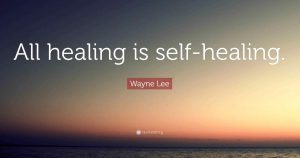《自律養生實踐家之旅310》 重症患者的痊癒轉折

那真是一種束手無策的局面,面對一位尚未覺醒的病患時,誰都幫不上忙。
那是生命瀕臨崩解的時刻,或是身體歷經生死交關的瞬間,當事人的腦海中只剩下一個念頭:「快救我!」
有時候,並不是做錯了什麼,可是生死的試煉,卻來得如此迅速。
回溯自己走過的人生,磨難從不曾缺席。關心你的人,也只能眼睜睜看著你孤獨承受。
很多時候,即便並非你的錯,也只能自己承擔。這樣的劇情降臨到生命中,從某個角度看,也許不是壞事。「獨自面對」的經驗,往往是成長的轉捩點。
生命,不是自己選擇,就是被他人安排。每個人都有機會回顧生命歷程,思考:自己真正主導的人生決定多?還是被動接受安排的情節多?
最令人玩味的是,無論決定是自己做的還是他人安排的,最終結果都得自己承擔,沒有人能替你埋單,更沒資格怨天尤人。
尚未覺醒的病患之所以渴望「被拯救」,是因為他們尚未意識到:真正的救贖來自於自我承擔。
真正覺醒的人,則深知療癒之路唯有靠自己踏上。
表面看來,人生而平等,但事實是,生命從未真正公平。唯有接受不平等的現實,才有可能體悟到更深層的生命啟示。
誕生在貧困的家庭,或許正是靈性的智慧選擇。從結果回看,那些磨難往往並非災厄,反倒提供了一條更接近真相的路徑。
生病,尤其是重病,確實是生命中重大的磨難。我在觀察眾多重症案例的過程中,深刻體會到「念頭」的力量:那些認定自己攜帶致病基因的、怨天尤人的、甚至憤恨醫生沒給予最好的療效的患者。
無論探討原因還是尋找治療方法,只要一味甩鍋,最終都只能被動等待失敗。
我曾深入重症病房,見證一些病患最終康復出院,卻也從此進入無盡的復診循環。他們的人生就此與醫院來回相繫,難以脫身。
多數人相信,進出醫院是人生的常態。畢竟,人生總會生病,而生病就要尋求治療,這似乎無庸置疑。
但我在極少數案例中,看見了真正的痊癒轉折點。他們未必完全理解身體的自癒力,但他們都明白一件事:必須切斷對醫療的依賴。
話題再次回到:究竟是「為自己做決定」?還是「接受被安排」?多數人其實並不清楚自己何時放棄了主導權,默默順從主流,走進醫療體系的懷抱。
在我熟悉的許多案例中,重症患者在接受化療過程中,曾一度向家人懇求停止治療,卻往往遭到否決。
在告別式的現場,心中百感交集,人們最常做的,就是剝奪他人為自己生命負責的自由。連人生最後的安寧與尊嚴,都由別人決定,這是何等的殘酷。
痊癒,屬於身體的權限。自生命開始以來,療癒從未離開過我們的肉身,身體也從未推卸過守護健康的責任。
那些得定期回診、長期依賴注射治療的人,我尊重他們的選擇,但也同時為他們的處境感到惋惜。
這是我們所受的教育,接受治療,就像服兵役,是一種「國民義務」。
我們從未被教育過,該怎麼傾聽自己的身體,無法聽見身體的聲音,是多麼可悲的一件事。
還記得,那位我重點關注的學員,站在教室裡分享她的故事。她輕描淡寫的提及自己被醫生摘除了四個器官,全場靜默。
我忍不住問大家:「醫療,是不是很殘酷?」。這不是需要辯論的問題,只需攤開藥物交互副作用的研究報告,無辜的患者該如何面對這樣的現實?
堅信要靠名醫解救病痛的人,最終往往忽略了真正的解方其實來自自己。你就算尋遍全世界,也找不到替代「自我承擔」的角色。
「自己的人生自己負責,自己的病痛自己解決。」如果這樣的話聽起來遙遠,那或許正是你身陷迷途卻尚未警覺的徵兆。
說醫療殘忍,也許還不如說:最殘忍的,是我們長年來對生命本質的無知與逃避。
被安排了一輩子,有些事終究必須由自己來定奪。特別是那些攸關生死的選擇,是他人再怎麼關心,也無法替你做決定的事。
重症患者的痊癒轉折,就是針對承擔和療癒的頓悟。
那是自己的事,哪來那麼多他人的決定?
(所有的痊癒都是自我痊癒)
The Turning Point in Healing for Critical Patients
It is a truly helpless situation—when facing a patient who has not yet awakened, no one can really help.
It is the moment when life nears collapse, or the body teeters between life and death. In that instant, the only thought in the patient’s mind is: “Please, save me!”
Sometimes, it’s not because of a grave mistake. Yet the trial of life and death arrives swiftly and without warning. Looking back, hardship has never been absent from life. And those who care about you? They can only stand by, watching you endure alone.
Often, even when it’s not your fault, you still have to bear the consequences yourself. When such a storyline unfolds in your life, it may not be a bad thing. In fact, the experience of “facing it alone” may become the pivotal moment of growth.
Life is either chosen by oneself, or arranged by others. Everyone has the chance to reflect and ask: how many decisions in my life were truly made by me, and how many were simply accepted as arrangements?
And the most ironic truth: regardless of who made the decision—yourself or someone else—you alone must live with the outcome. No one can pay the price for you. No one has the right to blame the heavens or others.
Patients who have not awakened often long to be rescued—because they have yet to realize that true redemption comes from taking responsibility for oneself. Those who are truly awakened understand that the path to healing must be walked by themselves.
On the surface, all lives appear equal. But in truth, life has never been fair. Only by accepting the reality of inequality can we begin to uncover the deeper messages of existence.
Being born into poverty might just be a form of spiritual wisdom. Looking back from the end, hardships are often not misfortunes but passages that lead closer to the truth.
Illness—especially serious illness—is undoubtedly a major trial in life. In observing many cases of critical illness, I have come to deeply understand the power of thought: those who believe they are genetically doomed to illness, those who blame others, and those who resent doctors for not providing the best possible treatment.
Whether exploring the cause of illness or seeking treatment, as long as we keep shifting the blame, the result is always the same: passively awaiting a tragic end.
I have been inside intensive care units and witnessed some patients eventually recover and return home—only to find themselves caught in an endless cycle of hospital visits. From that point on, their lives are bound to the hospital, unable to break free.
Most people believe that entering and leaving hospitals is a natural part of life. After all, everyone gets sick, and when sick, one must seek treatment—that seems beyond question.
Yet in a small number of cases, I have witnessed a real turning point. These individuals may not fully understand the body’s innate healing power, but they grasp one crucial truth: they must cut their dependence on medicine.
This brings us back to the question: are we making decisions for ourselves, or are we simply being led by others? Most people are unaware of when they relinquished control—quietly following the mainstream into the embrace of the medical system.
In many cases I’ve known, critically ill patients undergoing chemotherapy once pleaded with their families to stop treatment, but were denied.
At funerals, I often feel a wave of mixed emotions. One of the most common, yet invisible, forms of violence is depriving someone of the right to take responsibility for their own life. Even the final moments of peace and dignity are often decided by others—what could be more cruel?
Healing belongs to the body. Since the beginning of life, healing has always been embedded in our flesh. The body has never evaded its duty to protect and sustain health.
For those who require regular hospital visits or long-term injections, I respect their choice, but I also feel sorrow for their predicament. This is what we were taught: that receiving treatment—like serving in the military—is a citizen’s obligation.
We were never taught how to listen to our bodies. And not hearing the voice of the body is, in itself, a quiet tragedy.
I still remember one student I had closely followed. She stood before the class and casually mentioned that four of her organs had been removed by doctors. The room fell silent.
I asked everyone: “Isn’t modern medicine cruel?”
This isn’t a question of debate. Just look at research reports on the interactions and side effects of medications. How are innocent patients supposed to accept such harsh realities?
Those who place their faith in renowned doctors to cure their pain often forget that the real answer lies within. Even if you search the entire world, you won’t find anyone who can take on your responsibility for healing.
“Your life is your responsibility. Your illness is your burden to resolve.”
If these words feel distant to you, it may be because you are still wandering in a maze without realizing it.
To call medicine cruel may not go far enough. The cruelest thing of all is our long-standing ignorance of life’s essence—and our habitual escape from it.
After being passively arranged all your life, some decisions must finally be yours. Especially when it comes to matters of life and death, no one—no matter how well-meaning—can decide for you.
The true turning point for critical patients lies in one moment of awakening: the realization that healing begins with self-responsibility.
It is your life.
Why should anyone else be making your choices?


